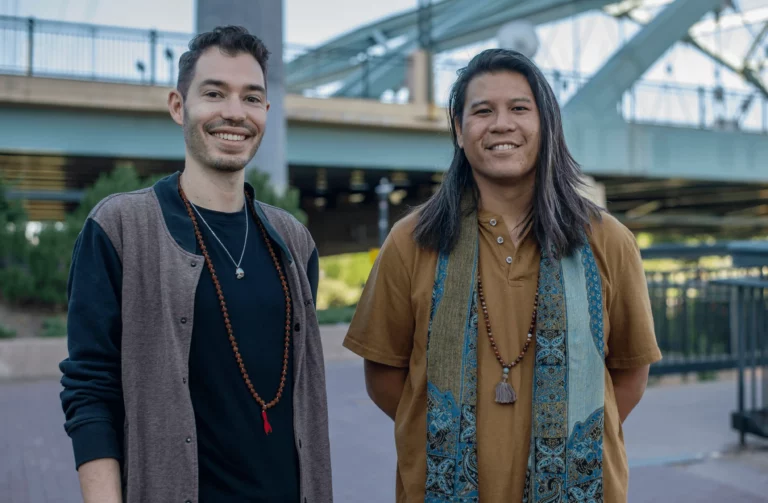How durable can we expect the results of psilocybin-assisted therapy to be? We see news articles and studies framing its benefits as ‘long term’, but how long is that really?
Well friends, unfortunately, there is no straightforward answer to this one. There’s several factors that contribute to the resilience of post-trip healing benefits, but the upside is that we, ourselves, have direct jurisdiction over the strength and longevity of these results.
It all comes down to your degree of involvement in preparation and integration processes, as well as your willingness to sacrifice comfort for the sake of personal development and growth. Today we’ll be tackling all of this and more, taking a deep dive into a concoction of practices that could drastically extend the lifespan of psilocybin’s therapeutic properties.
The Dilemma of Quantifying Change
The durability of psilocybin’s benefits largely comes down to how we define “productive results”. For instance, some use psychedelics to manage their cluster headache and migraine symptoms. These results are much more straightforward.
Anecdotal reports suggest that pain relief from one standard dose (3.5 grams) typically lasts anywhere from 1-3 months, in some cases even upward of one year. Whereas a micro dosing regimen for the same purpose, offers similarly dependable results, but requires extended periods of dosing for maintenance.
If you’re trying to treat a condition that you’re medically predisposed to, like depression, anxiety, OCD, or an eating disorder, your psychedelic experience may provide an initial boost in morale, but sustaining benefits requires that we express intentions to alleviate specific disorder-related side effects.
Quantifying change in someone with depression may account for things like level of interest in day-to-day activities or ability to concentrate, whereas someone with anxiety may scale their progress using factors like receptivity to change or time it takes to fall asleep or length of sleep.
Someone with PTSD may deduce the magnitude/longevity of psilocybin’s benefits by analyzing the number of routine flashbacks or intrusive memories and the level of discomfort associated with them.
Though these medicines are innately equipped to balance production of serotonin and overall neuronal overactivity, it’s important that we make time to inspect and digest the most burdensome side effects of our respective disorders.
At Psychedelic Passage, many of our clients come into the experience with identical intentions, but the disparity in result durability comes down to one variable–you and your efforts to hone the psychological tools that will establish productive mental routines for keeping disorder symptoms at bay.
Realistically, it’s possible that only one psychedelic dose will be needed to treat your ailment, but for most, this is usually the start of a much larger, lifelong healing journey that requires dynamic and vigorous engagement to experience lasting change.
Expectation Management
Believing that change is possible is an unwavering component for observing durable therapeutic benefits. If you cannot vouch for the adaptable fluidity of your own mind and body, any change that may take place would simply be negated by an assumption of internalized incongruence to the medicine’s healing properties.
The ego can be very fragile, it materializes its formless identity by attaching itself to beliefs that shape the bounds of our personality. Thus, by assigning archetypal attitudes to our own ways of being, with phrases like “I can’t change” or “I’m not the type of person that can be healed with psychedelics,” we’re satiating the ego-driven desire to anchor solidity where solidity simply does not exist.
That’s to say, when we look deep into ourselves, past our physical appearances and outward personalities, past the experiences and conditioning that shape our beliefs, we’re not left with much of a solid center—just a conglomerate of thoughts that latch onto formless constructs in order to physically conceptualize our place in, and relation to life and its boundless nature.
Our identities are ever changing and by allowing ourselves the space to objectify our beliefs in a much more liquid way, we can nurture a healing experience that opens our hearts and minds to the malleable essence of our being.
Therefore, the degree to which we experience durability of psilocybin-assisted therapy results, is in direct proportion to our internalized expectations of self-versatility and our willingness to adopt more amenable perspectives.
This psychological phenomenon is backed by much science. In other articles, we’ve delved deeply into the all-encompassing effects of our brain’s DMN (Default Mode Network). In short though, the DMN is a self-referential network that curates our perceptions of self by collecting the debris of our conscious thoughts, to ruminate them in absence of our focused attention.
It’s a mental static that reinforces and magnifies our preconceived beliefs by routinely circulating their presence when we’re unconsciously daydreaming about the future or replaying memories of the past. This self-fulfilling neural network essentially dominates our conceptualizations of self by incessantly regurgitating the nuances of our mental attitudes.
Therefore, if we believe change cannot fall upon us, the DMN will only fortify those beliefs by engaging our brains in cognitive bias, more specifically, conformational bias—a systematic error in thinking that evokes a neural tendency to search for, interpret, and recall internal and external stimuli that favors and confirms our preconceived beliefs.
Essentially, if you believe that psilocybin cannot provide long lasting effects on your mental wellbeing, your brain will only scan for cues that support and insulate these perspectives, making it nearly impossible to experience and observe any contradicting information.
Since the psychedelic industry is still in its western infancy, most clinical trials have only published the results of a 6-month follow-up.
However, research agrees that for at least 6 months after your psychedelic trip, you’ll likely be experiencing sustained results.
Please note, this is only if proper preparation and integration procedures are conducted. All study participants receive extensive pre-treatment and post-treatment sessions to focus and apply the knowledge gained from the experience.
Energy In = Energy Out
Aside from the internal narratives that dictate our healing trajectory, the durability of these treatments are heavily rooted in the amount of mental and physical energy we’re willing to exhaust. In other words, the potential for extracting lasting results from psilocybin-assisted therapy are weighed by the amount of time and focus that we choose to direct toward our healing.
We cannot expect these medicines to promote a lifetime of change without dedicating ourselves to the extensive integration of their teachings. Imagine going to a friend for their advice on a matter—this results in a long list of very wise and productive options for addressing the issue.
If you listen to their advice without taking any further integrative measures, the exchange will very obviously be unfruitful. The same goes for psychedelic-assisted therapy. Having a lasting therapeutic experience means taking the time to execute an intentional plan for change.
The first step is of course, creating an intention for the journey, understanding what purpose you want the medicine to serve—whether that be addressing an addiction, relief from anxiety or depression, or simply asking the fungi teacher to surface any lingering maladaptive complexions that are limiting your personal development.
During the actual psilocybin experience, it’s of great importance that you’re willing to surrender to and accept all internal issues that may arise during your trip. This way, you can accumulate a solid foundation of constructive realizations that can be built off of after the experience.
Putting your energy into a therapeutic integrative experience presents itself with several exploratory faces. It means making the necessary environmental modifications to host sustainable change.
If for example, you come to the realization that your happy hour work environment is maintaining your parasitic relationship with alcohol, you must be willing to create distance between yourself and this setting. You must be prepared to play an active role in parting with the mental and physical territories that no longer serve you by manipulating obstructive and possibly triggering antecedents.
A psychedelic trip may make you aware of internalized defenses that perhaps helped you cope with situations in the past, but are now burdening your relationships with those who are closest to you. In this case, we must strengthen the muscle of incidental learning—the practice of making better choices when we find ourselves in an unplanned or unintended environment.
For example, if your psychedelic journey unveiled a struggle with self-managing emotions of anger, you must be willing to identify the physical and mental patterns that cue these behaviors, so when an anger-evoking situation presents itself, you no longer react out of impulse, rather you take the time to process those emotions and interact with them in a much healthier way.
It’s not about suppressing defenses, rather allowing them to flow through and out of you without feeling a need to connotate your identity with them. Again, we see our mental narratives playing an important role in the persuasion of our attitudes.
Unlearning these habits means speaking to yourself, not as though you are the emotion of anger itself, with words like “I am angry”, but with more fluid phrases like “I am feeling anger.” Accepting the non-permanence of our current conditions is key for establishing long lasting changes in our mental sceneries.
Reparenting Ourselves
All in all, the benefits of a psychedelic experience can last a lifetime, but the degree of permanence is 100% dependent on how you choose to exercise your new-found knowledge. We, as psychedelic facilitators, can only help inform and guide your course of treatment, we cannot do the healing for you—so you must be willing to show up and do the vulnerable work that ultimately sways your diagnostic prognosis.
This level of involvement can be described as a process of reparenting your inner child, giving yourself the support and patience that perhaps wasn’t offered to you in adolescence. We must create a discipline of holding ourselves accountable for this change while also nurturing a sort of self-directed trust that stems from developing more functional intrapersonal communication through honesty and empathy.
Instead of shaming ourselves for the occasional slip up, we should create the habit of sitting ourselves down and analyzing why these circumstances played out the way they did and how they can be avoided going forward. With a balanced practice of exposure therapy and errorless learning—an instructional design meant to reduce lapses in judgment by eliminating confounding and possibly triggering stimuli—we should find ourselves in a healthy and productive rehabilitative state of mind.
Reparenting our conditioning means listening, listening to that little voice that’s been crying out for attention, satiating its need for compassion and loving presence, while offering ourselves the respect and dignity that’s warranted by our relentless efforts to heal the wounds of our traumatic past.
Closing Remarks
Truly, we hope that our words have resonated with the healing intentions of your hearts and minds.
Countless clinical studies, like those conducted by John Hopkins University on psychedelic therapeutics, have proven time and time again that long lasting healing for a wide spectrum of mental and physical ailments are indeed possible.
However, we must consider the weeks and months of integration support that were included in these trials. The basis of these treatments is equally rooted in both their drug and therapy counterparts. Thus, when embarking on your psilocybin journey, preparation and integration are vital for experiencing this medicine’s durable effects.
Psychedelic Passage would be honored to guide you in the right direction, so we invite you to book a consultation with our psychedelic concierges to ensure the most seamless transition between these drastic, possibly life changing, altered states of consciousness.
We leave you with a humble analogy on the lifestyle of a lotus flower. Just as the magnificently-resilient body of the lotus flower does—trust in the light, grow through the murky mud of life, and believe in the organic unfolding of new, self-actualizing beginnings.



